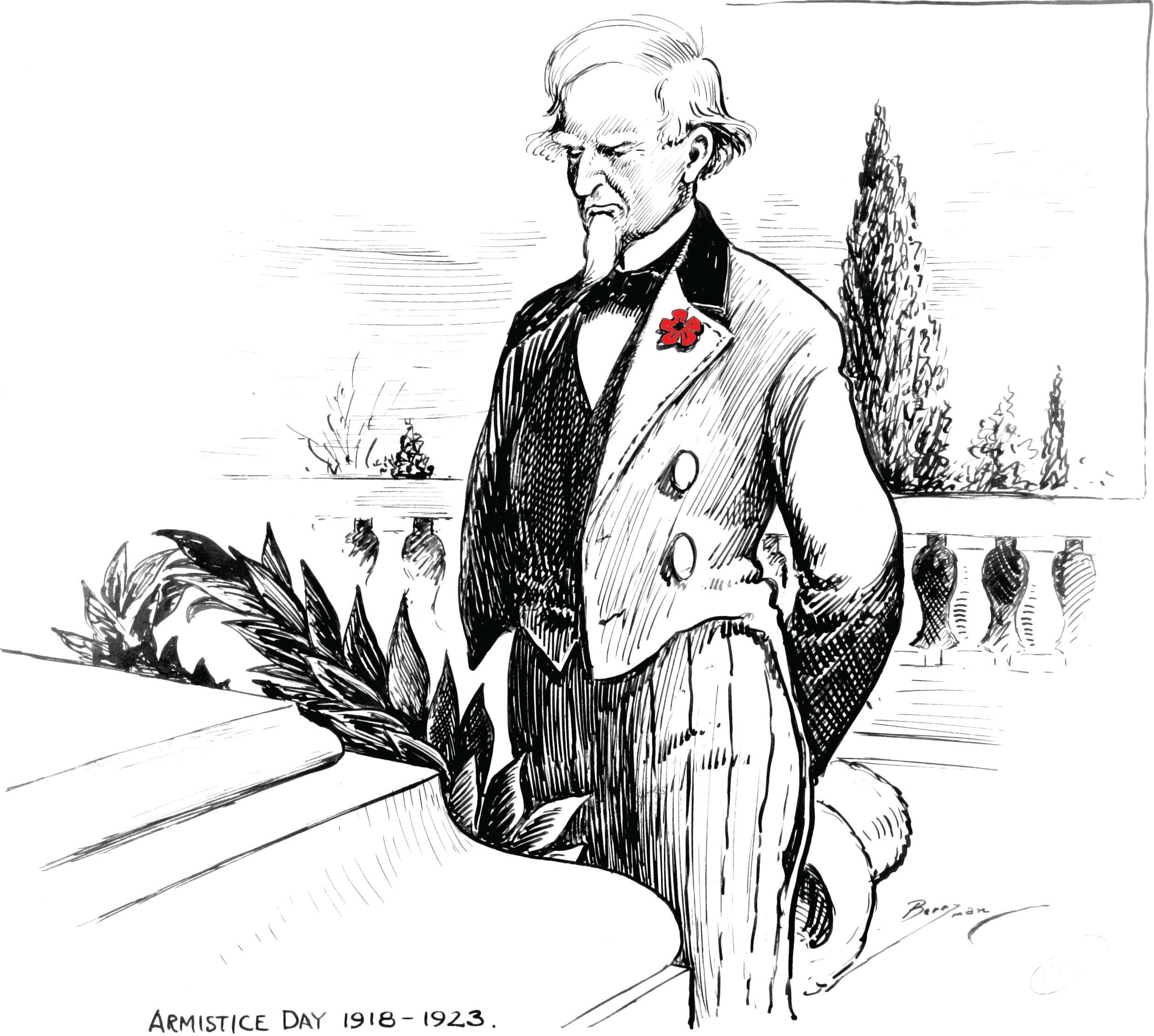Veterans’ Day is rightly observed throughout our country. Specifically reserved for those who have served the United States, it is distinguished from the other two national days for military personnel, Memorial Day and Armed Forces Day.
We are so used to accepting the need to honor our present and former soldiers that we might not realize that it has not always been so. This nation’s veterans were not treated at all well at the very outset. In this, America was little different in its attitude than many other countries –veterans, who after a certain age have little to offer, were hardly viewed as a priority.
It was not always so. In ancient Greece, for example, there was great honor in military service. The philosopher Socrates was justly proud of having refused an offered exemption and instead served as an ordinary soldier in the Athenian phalanx.
We always think of the ancient Greeks as philosophers and artists, but no Greek city would have chosen a draft dodger as its leader. (We have done it twice.) In ancient Rome, veterans returning from successful expeditions gained great public acclaim, and Rome operated hospitals and residences for veterans. In some places, veterans from elite military units, such as Turkey’s Janissaries, received benefits upon retirement.
MORE: Veterans Day Salute: Sam Anderson
So why did this not continue into the modern age?
In the history of the West, this is not difficult to understand. After the collapse of the Roman Empire, regular armies were virtually nonexistent. Armies consisted of nobles and vassals, i.e. people who owed the lords loyalty. Those nobles, in turn, would bring their servants. Rewards – including those for past service – did exist, but there was no organized system.
As more modern organized armies began to appear, their officers often received benefits that extended beyond their actual service, but the rank and file had to content itself with its pay. Land settlements were available, but over time. these became less available (except in Ireland). This is why so many nobles became conquistadors, seeking land, fame and fortune in the Americas.
[adrotate banner=”51″]
In the United States the availability of land – once liberated from the natives – was not a problem, but for the farmers who joined Washington’s Continental Army, this was not always a practical alternative. A farmer in Massachusetts would have little use for a land grant in the Ohio Valley. The soldiers were promised bonuses after their service, but the new United States had no money to honor those commitments. Revolutionary War veterans were very unhappy with their treatment after the war, and the lack of promised money was the last straw. In 1785 a mob of armed veterans attacked Congress, which had to flee the then-capital of Philadelphia as it had neither the money to pay the veterans, nor the money to provide itself with security.
Two years later a Massachusetts veteran, Daniel Shays, launched a rebellion that the New England states suppressed – but with great difficulty, and it took six months. The federal government was far too weak to help. This was one of the major reasons why the Constitutional Convention of 1787-89 created a far more powerful federal government than before. (Another not unrelated reason was national security, as we could not protect ourselves.)
MORE: Veterans Day Salute: Lisa Maddox
Veterans benefits became more popular when a large proportion of the nation’s families had a veteran in their ranks. This happened three times in less than a century. In terms of participation, the greatest of these was the first, the Civil War. It gave birth to Memorial Day, but as yet there was no national day to honor U.S. veterans. However, there were many special recognitions of veterans’ service across the country, much of it organized through the Grand Army of the Republic. This was the postwar organization intended for all veterans of the Union army.
The biggest step was taken during World War I. In terms of impact on America, that war does not compare to the Civil War because we were a comparatively late entrant. The war began in July of 1914; we declared war on Germany in April of 1917, and our combat presence did not become significant for another year. Yet for Americans, it was still a gigantic event. More Americans served in the American forces than at any time since, and half – some two million – would serve overseas in France and Belgium. While our losses were low compared to our allies, they still exceeded Vietnam and Korea combined (over half being from a virus, the ‘Spanish’ Flu).
This brings us to a very important point; being a veteran covers many things. The word veteran may refer to a lifelong professional soldier or a short timer. It covers the combat veteran and the clerk in the rear. The percentage of noncombatants in armies has increased steadily. In World War I, half of the troops never left North America, although ironically, the epidemic made their life on average just as dangerous as the soldiers in France. And all who are in army are subject to the dangers of war, not to mention the dangers of peacetime training.
MORE: Veterans Day Salute: Howard Stallings
This was clearly understood when World War I ended. At 11a.m. on the 11th of November 1918, the guns fell silent. That the ending of this war represented something significant, something special, and not just another diplomatic agreement was universally accepted. Hence the unfortunate term “the war to end all wars,” and the establishment of a special day, soon accepted in many nations: Armistice Day. It was always to be celebrated on Nov. 11. While it celebrated the end of the war, it was from the outset seen as a time to recognize veterans. I suspect this was because so many countries had unprecedented numbers of veterans to care for.
In 1954, the U.S. Congress renamed Armistice Day to Veterans Day. So nowadays, American veterans have their own day, as well a cabinet department to look out for their welfare, a chain of hospitals, and a host of benefits including job preferences, the G.I. Bill, special university programs, and discounts at many private businesses.
May it always remain so.
Hubert van Tuyll is an occasional contributor of news analysis for The Augusta Press. Reach him at hvantuyl@augusta.edu











